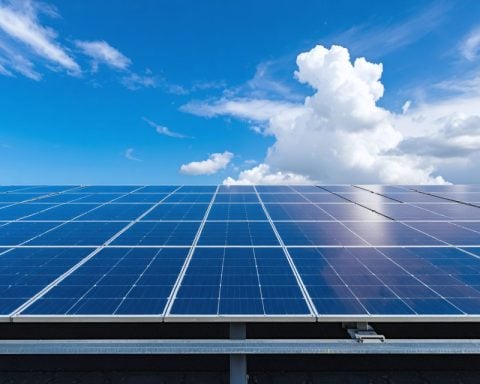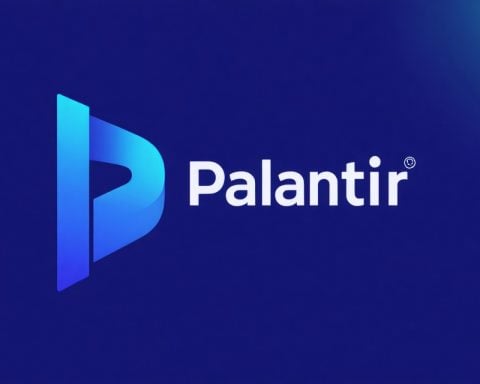Premier Invest is poised to unveil a specialized Deal Room during the upcoming Invest in African Energy (IAE) Forum, taking place on May 13-14, 2025, in Paris. This initiative aims to connect energy companies, project developers, financial institutions, and investors, propelling essential energy projects across Africa.
The Deal Room is designed as a strategic platform that will facilitate negotiations and foster partnerships. It seeks to enhance capital investment in Africa’s burgeoning energy sector by enabling meaningful engagements among private equity firms, global investors, development finance institutions, and government entities focused on high-value transactions.
IAE 2025 is positioned as a crucial event aimed at bridging African energy markets with international investors. The forum will gather prominent leaders from the continent’s energy industry, emphasizing sectors such as oil, gas, renewables, and infrastructure. Participants will benefit from two days filled with intensive discussions with industry experts and policymakers.
As Africa’s energy landscape rapidly transforms, the Deal Room will concentrate on attracting investments in vital areas, including large-scale infrastructure projects, exploration ventures, renewable energy initiatives, and gas-to-power programs. Premier Invest will play a pivotal role in mobilizing the necessary capital to bring these opportunities to fruition.
With a focus on high-level engagements, the Deal Room will enable participants to conduct one-on-one meetings, shape partnerships, and secure funding for diverse energy projects. By promoting strategic collaboration, this platform aims to bolster Africa’s ambitious energy development goals, ultimately supporting the continent’s sustained growth and long-term viability.
Implications of the Deal Room for Africa’s Energy Future
The introduction of the Deal Room at the upcoming Invest in African Energy (IAE) Forum reflects a significant strategic movement towards revitalizing Africa’s energy sector. This initiative carries broader implications that extend beyond immediate financial transactions; it offers a framework for long-term societal and cultural shifts across the continent.
One of the most profound impacts of the Deal Room is its potential to democratize access to energy. By facilitating partnerships between energy companies and financial institutions, the initiative aims to elevate previously underfunded energy projects. This increased investment can lead to greater energy availability for communities, improving quality of life and economic opportunities. As energy access expands, local economies may see a vibrant transformation, empowering individuals to engage actively in economic activities that were once constrained by energy shortages.
Culturally, the Deal Room stands to promote knowledge-sharing and technological transfers from global investors to local entities. By connecting international players with African project developers, there is an opportunity to harness innovative energy solutions tailored specifically to local needs. This exchange can foster a culture of sustainability and resilience, as communities begin to adapt and adopt renewable energy practices that align with both global standards and local contexts.
From a global economic perspective, Africa’s energy sector is on the brink of a transformative phase. As countries across the continent strive towards energy independence and diversification, the Deal Room could position Africa as a key player in the energy market. This shift not only benefits the continent but can also stabilize global energy supplies, making Africa an essential partner in the quest for sustainable energy solutions.
Moreover, the focus on renewable energy initiatives can have significant environmental implications. As the global community grapples with issues related to climate change, Africa’s investment in sustainable energy projects through the Deal Room could serve as a model for green transition strategies. This could attract further foreign investment aimed at ecological sustainability, aligning with international climate agreements and fostering a collaborative effort to achieve shared environmental goals.
Looking closer to the future, the emphasis on large-scale infrastructure projects, gas-to-power programs, and other strategic initiatives could solidify Africa’s role in a dynamic energy landscape. As the continent’s energy demand continues to escalate, the proactive mobilization of capital will be critical in establishing a robust energy backbone that can support not only economic growth but also the broader aims of energy security and environmental sustainability.
In conclusion, the Deal Room represents more than just an investment opportunity; it signifies a pivotal moment for Africa’s energy narrative. By catalyzing connections among stakeholders, promoting innovation, and emphasizing sustainable development, the initiative could redefine the continent’s energy path, influencing societal structures, cultural norms, and global economic dynamics in the years to come.
Maximizing Opportunities: Navigating the Deal Room at IAE 2025
The upcoming Invest in African Energy (IAE) Forum 2025 promises to be a pivotal event for energy innovation across the continent, particularly with the introduction of Premier Invest’s specialized Deal Room. As the energy landscape evolves, understanding how to maximize opportunities within this space will be vital for participants. Here, we’ll explore how to effectively engage in the Deal Room, outline potential pros and cons of this initiative, and anticipate future trends in investment flows toward Africa’s energy sector.
How to Prepare for the Deal Room Experience
1. Identify Your Goals: Before entering the Deal Room, stakeholders should clearly outline their objectives. Whether seeking partners for renewable projects or funding for oil exploration, clarity will streamline the dialogue.
2. Research Potential Partners: Utilize the forum’s networking capability to identify and research potential partners or investors who align with your values and project goals. Tailored engagement is key to successful negotiations.
3. Prepare a Compelling Pitch: Develop a concise and impactful presentation of your project, including financial forecasts, technological innovations, and unique selling points to attract potential investors.
4. Engage Actively: During the one-on-one meetings, maintain an open dialogue. Engage in discussions about market trends, share insights, and address potential concerns that investors may have.
Pros and Cons of the Deal Room Initiative
Pros:
– Enhanced Collaboration: The Deal Room facilitates direct interactions between diverse stakeholders, fostering partnerships that might not develop in traditional settings.
– Targeted Funding Opportunities: By focusing on the energy sector, the Deal Room presents specialized opportunities that can lead to faster and more efficient investment outcomes.
– Expert Insights: Attendees gain access to a wealth of knowledge from industry leaders and policymakers, which can guide strategic decision-making.
Cons:
– Limited Time for Due Diligence: The fast-paced nature of the Deal Room may limit the time available for thorough due diligence, potentially leading to rushed decisions.
– Possible Over-optimism: The excitement surrounding the event may cause stakeholders to overestimate the feasibility of projects or the level of available funding.
– Dependency on Networking Skills: Success heavily depends on individual networking abilities, which may be challenging for some stakeholders.
Future Trends in African Energy Investment
The introduction of the Deal Room aligns with predicted increases in investment across Africa’s energy sector. Experts anticipate a surge in interest in renewable energy projects, particularly as global energy policies shift toward sustainability. Moreover, as governments embrace energy diversification, investments in gas-to-power initiatives are expected to rise.
Additionally, investors are likely to favored projects that integrate technological innovation, such as smart grids and energy storage solutions. This technological pivot presents opportunities for start-ups and established companies alike to forge pathways into Africa’s energy market.
In conclusion, with the Deal Room’s initiation at IAE 2025, stakeholders can harness strategic partnerships that propel the African energy sector into the future. Engaging thoughtfully, balancing optimism with pragmatic analysis, and remaining adaptable to emerging trends will be vital for capitalizing on this crucial opportunity. For further insights on investing in African energy, explore resources from reputable energy networks and financial institutions.












